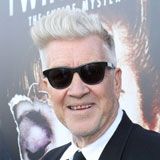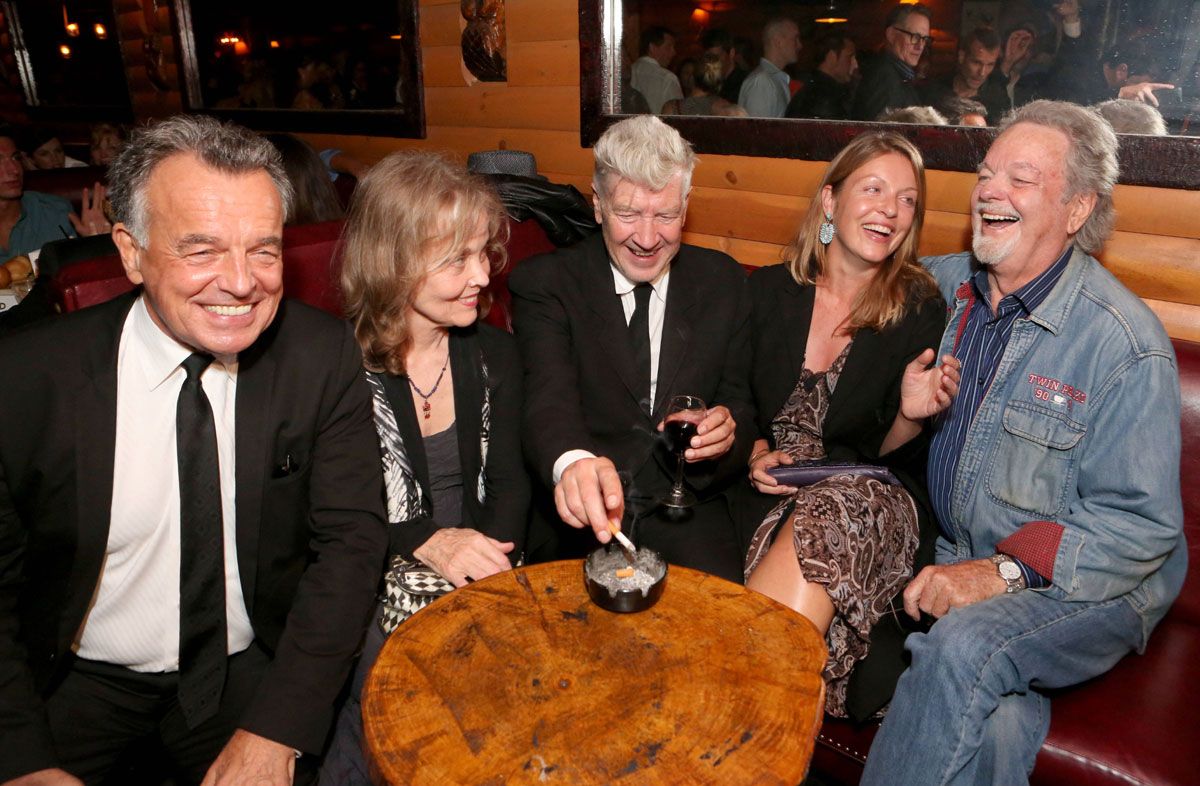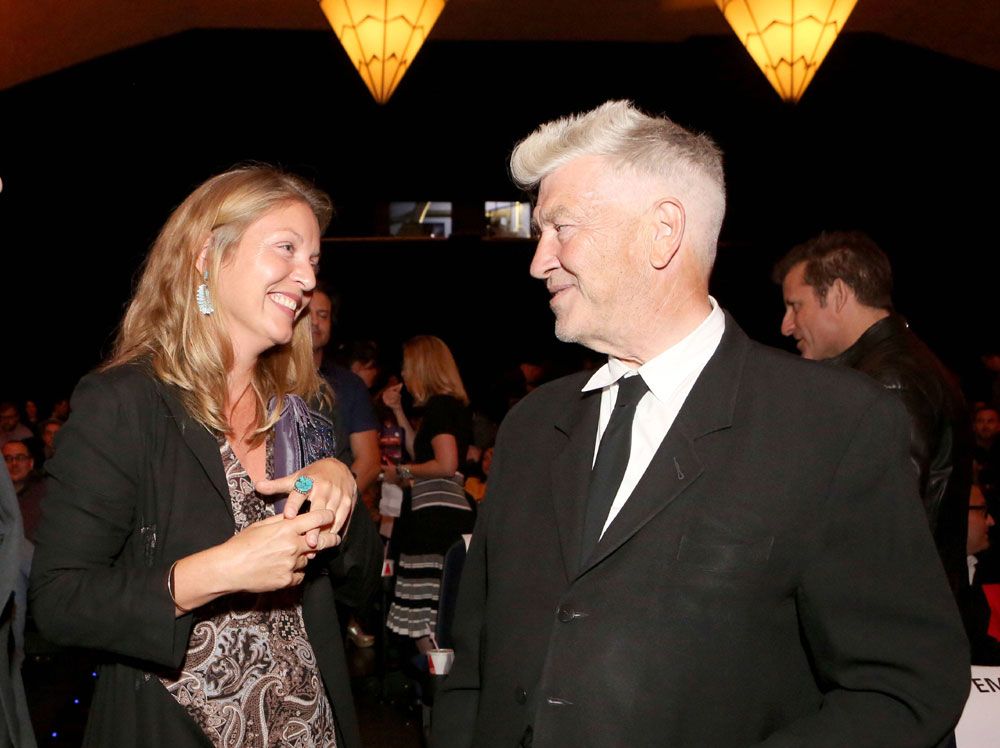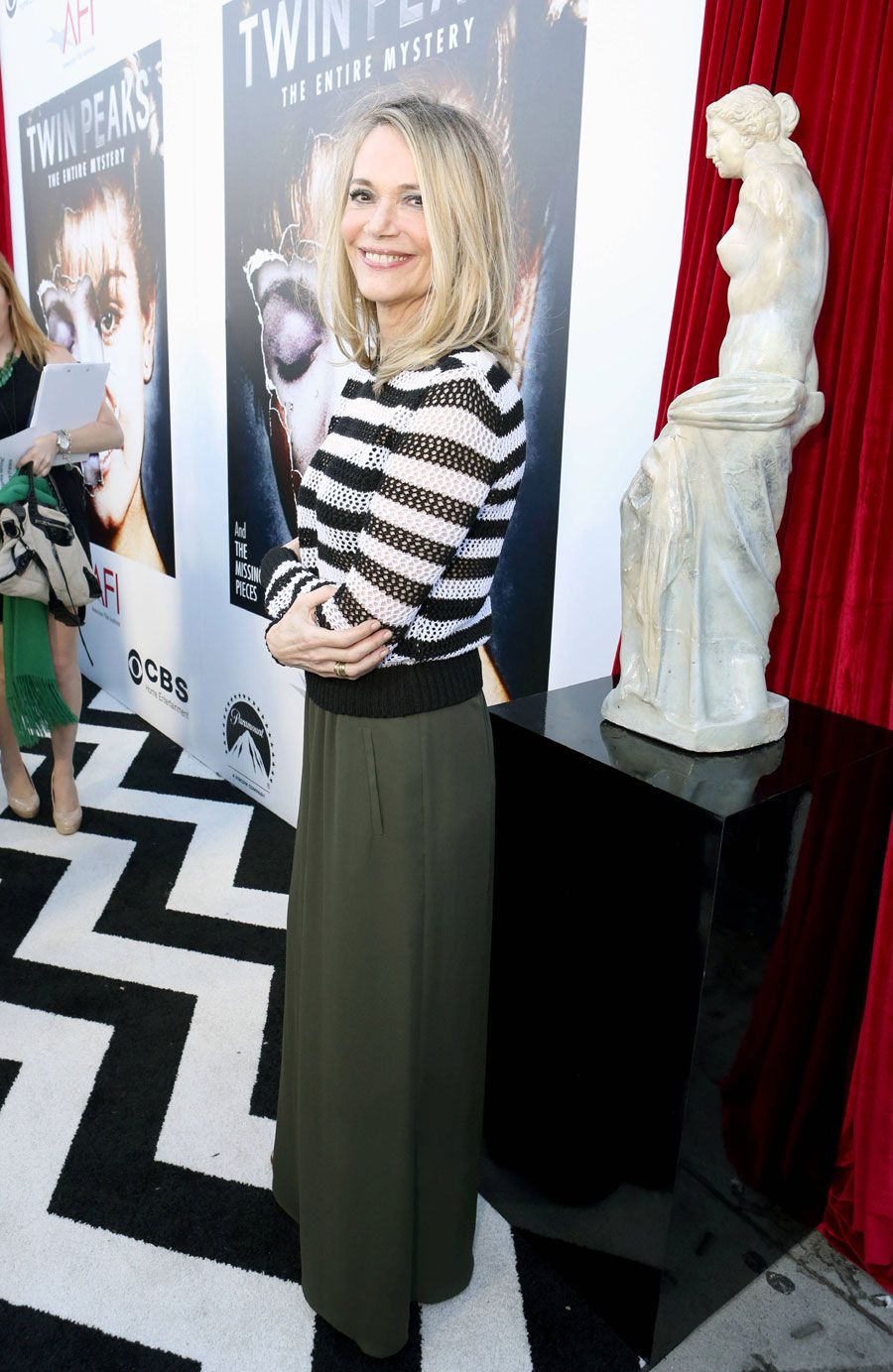Small-town scandal. Mysterious murders. Double lives. Log-toting locals. Majestic Pacific Northwest scenery. Supernatural intrigue. Damn fine cherry pie.
Yeah, Twin Peaks had it all.
In 1990 the sensational but short-lived ABC television series created by David Lynch and Mark Frost was buzz-worthy, watercooler fodder, with viewers urgently wondering who – or quite possibly what – killed Laura Palmer almost from the moment the pilot aired.
Set in the titular Washington logging town rocked by the murder of the popular teen beauty with a hidden wild side, Twin Peaks was instantly propelled into the zeitgeist thanks to unique, frequently byzantine elements, ranging from its loopy but straight-faced take on soap opera melodrama and Lynch’s signature surrealist imagery to its haunting musical themes and a cast of breakout stars and revitalized veterans.
To mark the release this week of Twin Peaks: The Entire Mystery, a Blu-ray collection largely curated by Lynch himself, compiling all 30 episodes of the series, the 1992 film Twin Peaks: Fire Walk With Me and other material, Spinoff Online joined several members of the cast and creative team to revisit the pop-culture phenomenon.
Ray Wise (Leland Palmer): I've rarely ever been challenged as much as Twin Peaks did back then, back in the day. And it was just a wonderful experience, a wonderful character, a great cast, David – all of it combined. I knew it was special, but I had no idea it would have such an impact. And then when that first episode aired on television, then we knew. We knew it was something, and we had the momentum going. We were in the groove. The cast knew what they were doing, and we couldn't wait to do it.
Madchen Amick (Shelly Johnson): I was brand-new in the business, so I kind of didn't know any better, in a weird way. But I did know of David's work before, so I knew that David doing television was going to be something. I didn't know if it was going to be that people wouldn't get it and it wouldn't do well, or maybe it would be amazing. And thank goodness it was amazing! People loved it, and they love to it this day. And it just shows we really did change television. To see that people still appreciate that now, I'm so thankful for that.
Catherine E. Coulson (The Log Lady): David and I have known each other since our student days doing Eraserhead, and that's when he thought up the character of the Log Lady. So for us to have grown up with these people that we helped create has been a wonderful journey. I can't ask for a better life. And I've continued to act and do other things, but I know I'll always be known for the woman with the log [laughs].
James Marshall (James Hurley): In the moment that it was happening, it was one of the most beautiful periods of my life because the way David sets up his sets, he puts a whole world around it – and even when you're not shooting, and your days are off, part of your head is still involved because he's got you so jazzed about what you're doing. So it's like you're always almost in this part-dream state: Then, I didn't just get to work with David Lynch and go shoot something. The thing actually got successful! All of a sudden that took off, so I got to kind of knock around Hollywood and ride the motorcycle through Hollywood and go on meetings and auditions and do the whole romantic actor, Hollywood thing. And it was real fun!
Grace Zabriskie (Sarah Palmer): At the time, I knew that we were doing something special. And as we began to realize at least partially how special, that whole change in zeitgeist was a while to come, really – certainly in terms of realizing that something had happened as things go culturally, permanently. It wasn't to be just a flash in the pan kind of thing, and looking back, it's almost as though everything was a part of what it was, including the things sort of imploding down on itself at the end of the second season. It's like looking back, it was all part of it. I didn't think so at the time.
Miguel Ferrer (Agent Albert Rosenfield): I wasn't in the pilot. They called me and they said, “We want you to do this series,” and they sent me two scripts. Try reading episodes two and three without having seen the pilot – I don't recommend it. And so I had a meeting with Mark Frost and he said, “So. I'm glad you're aboard.” And I said, “Yeah, me too!” And I guess I had this look on my face, and he said, “You haven't seen the pilot, have you?” And I said, “No” and he said, “That explains why. OK – hold on.” And he gave me it and he said, “Go home and watch this and call me after you've seen it.” I went home and I watched it. I called my 10 best friends. They came over. We watched it again and didn't speak for five minutes. I mean, it was unlike anything anyone had ever seen. On network television? Are you kidding? It was amazing.
Mary Jo Deschanel (Eileen Hayward): David creates that atmosphere where you can notice one little thing, and if you say something, he hears you, and he'll change things all around. It doesn't matter. He'll listen to any idea, anything around him. There was a feeling of time and the luxury of sort of getting into your part and everything. It was just creativity was really respected which is very unusual. … so it was very exciting to do it. It was fun to have my husband [cinematographer Caleb Deschanel] there to both be a part of it.
For many of those involved with Twin Peaks, the actual working experience was more rewarding than the acclaim that followed.
Angelo Badalamenti (composer): Writing “Laura Palmer's Theme,” David would just sit next to me and talk in a poetic, soft way, and he would describe a mood. And I could close my eyes and just sit down at the keyboard and do it. And David would just pick up on that and just say, “Oh, my God – I see! I see Twin Peaks!” He really did. It was amazing. Or different characters. A great way to work with David. So his words were inspiration to me, and I was able to translate his words into music that seemed to work.
Peggy Lipton (Norma Jennings): We worked in that weird bar in Seattle where we filmed the pilot, where the girl was singing, and Ed [played by Everett McGill] and I are sitting there talking about how we have to be together and get rid of the wife. And David just sat there at the table with us forever helping us with that scene, and I'll never forget. The most patient, the most wonderful director.
Coulson: One of my favorite scenes is the Log Lady chewing Pitch Gum and spitting it across and defying the character of Norma. We had a good time thinking those things up. And David is very spontaneous on the set, so a lot of it really came about as we were shooting.
Amick: Playing around with the other actors – I mean, we were just idiots on set! We ran around and played pranks, laughed, and played. That absolutely brings a smile to my face. And the way that David and Mark created an environment on set that allowed that to happen, they allowed us to have fun. They allowed us to feel inspired. They would constantly hold us accountable. “Well, what do you think your character would do? Where do you think the story should go?” So I really appreciate that.
Wise: My relationship with Sheryl Lee was very special – the gal who played my daughter, Laura – and every moment really that I shared with her was very special. She gave me a little picture of her – I believe she was in the fourth grade – and I put it in my Leland Palmer wallet and I carried that picture with me all during the making of that show. That little fourth-grade picture of Sheryl Lee was very special to me, and I kept it with me the whole time.
Marshall: I remember David Lynch coming up to me and telling me what he dreamed the night before. And he doesn't work by dreams, but he just walked up and to hear him explain to me what he dreamed the night before, and what the dream was, was hysterical. And after he got done telling me, I turn around and we're getting ready to shoot a scene and the weather changes up there a lot, and there was a rainbow sitting right there. Just beautiful, that kind of stuff.
Ferrer: When they gave me – I think Mark Frost wrote it – the Albert Rosenfield speech about where his motives are akin to those of Gandhi and KingI still think that's the greatest thing that anyone has ever asked me to do in my long and sordid career.
Wise: They did not want us to know what was going on, really, or what the end result would be of anything, as people in life don't know what's coming around the corner or what the next day is going to bring. That's the way it was perceived by David and Mark, and the cast quickly latched onto that and knew that's what to expect. And so with great anticipation we read every weekly script as soon as it came out to see what we would be doing [laughs]. And for my character, Leland, it was just wonderful. I mean, how often do you get to play somebody who throws himself onto a casket [laughs] and then rises up and down or dances by himself or becomes almost schizophrenic?
Twin Peaks could often be puzzling for its viewers. But did the cast feel they “got” what Lynch and Frost were doing in the moment?
Lipton: Oh, yeah. I got it.
Amick: I got it because I'm from Reno, Nevada, so it was very similar to me. I was like “Oh, this is Reno. OK – I get it.”
Zabriskie: What I got was there's nothing to get, exactly – you know? Any more than there's anything to get about a painting. I mean, if it stimulates conversation and it stimulates thought, if it stimulates interactions and sparks – that's what it was about, for me.
For those involved, today the phenomenon that Twin Peaks sparked remains a singular moment in their professional and personal lives.
Badalamenti: I've done some 15 movies scores, plus God knows this-and-that album, blah, blah, blah, and in my travels in various countries where I'm doing the score in London and France and recently came back from Stalingrad, Moscow. The first question, from everyone who grabs you, is Twin Peaks. Because the whole world watched this thing! It's just amazing. And there's just no question about it, and I think it's not only me. I think anyone who's been involved with Twin Peaks – all the actors, even to some degree Mark Frost and David – there was nothing like Twin Peaks. It just took the world by storm. It was the most intriguing thing, and it's meant everything in my career. It's been very important. It established a kind of a sound that everyone seemed to pick up on and appreciate, and it was different. It had its own identity, which was great.
Lipton: Now, it's kind of a weird and wonderful sensation at the same time. It's kind of emotional. I kind of feel like, “Wow, did I really take advantage of it?”
Wise: Leland Palmer really put me on the map, career-wise. And I remember going through a time when everybody wanted to meet me, just to meet Leland! I think I got some jobs out of that, too, but most of them wanted to meet me. And that was great – I met a lot of people that I probably wouldn't have normally met otherwise in the business. And Leland has had that kind of an impact since then, even. I just recently went on Twitter, and I get tweeted so many times by Twin Peaks fans, and they've been faithful. There are a lot of them, worldwide. I made a movie in Romania, and everybody in the country knew Leland Palmer. One in Bulgaria, everybody knew Leland Palmer. I was in Spain, everybody in Leland Palmer in Madrid, Barcelona. And Italy, I was in Milan and Rome, everybody knew Leland Palmer. I just couldn't believe it.
Coulson: It's pretty amazing that it's stuck around. I think it really resonated with the American psyche – with the world psyche, really. There’s something about the story people really enjoy – and we enjoyed doing it.
Ferrer: Everyone involved loved being there. We were really aware that we were doing something very different. I don't think we realized to the extent that it was going to change everything, which it certainly did. I don't think we had the idea or even the thought that it was going to stand the test of time that it has. Everybody was just happy to be there.
And finally, a last word from the source himself, David Lynch, speaking briefly before a Hollywood screening of Twin Peaks: The Missing Pieces, a 90-minute extra on the Blu-ray collection in which Lynch purposefully edited deleted sequences in a mesmerizing flow that, bizarrely and almost inexplicably, works as a movie-underneath-the-movie on its own. And as with all things Twin Peaks, his words are yours to make of what you will.
David Lynch (director and co-creator): There is an abundance of fish in the sea, but tonight I would like to speak about wood. There are many times in the world when the phone rings, and someone is inquiring about wood. This happens primarily at lumberyards, and in this case, it is necessary to have a phone. It is only natural that trees are growing, and that they are made of wood. Much happiness can come from observing a tree, and the same can be said about observing the many shapes fashioned out of wood. Quite often, when we are talking about beauty, we are talking about wood.





